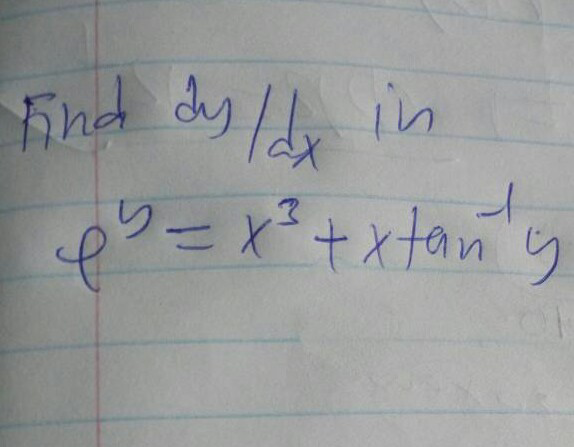
Question and Answers Forum
Question Number 29324 by mondodotto@gmail.com last updated on 07/Feb/18

Answered by ajfour last updated on 07/Feb/18
![e^y ((dy/dx))=3x^2 +tan^(−1) y+((x/(1+y^2 )))(dy/dx) (dy/dx) = ((3x^2 +tan^(−1) y)/([e^y −(x/(1+y^2 ))])) .](Q29327.png)
| ||
Question and Answers Forum | ||
Question Number 29324 by mondodotto@gmail.com last updated on 07/Feb/18 | ||
 | ||
Answered by ajfour last updated on 07/Feb/18 | ||
![e^y ((dy/dx))=3x^2 +tan^(−1) y+((x/(1+y^2 )))(dy/dx) (dy/dx) = ((3x^2 +tan^(−1) y)/([e^y −(x/(1+y^2 ))])) .](Q29327.png) | ||
| ||